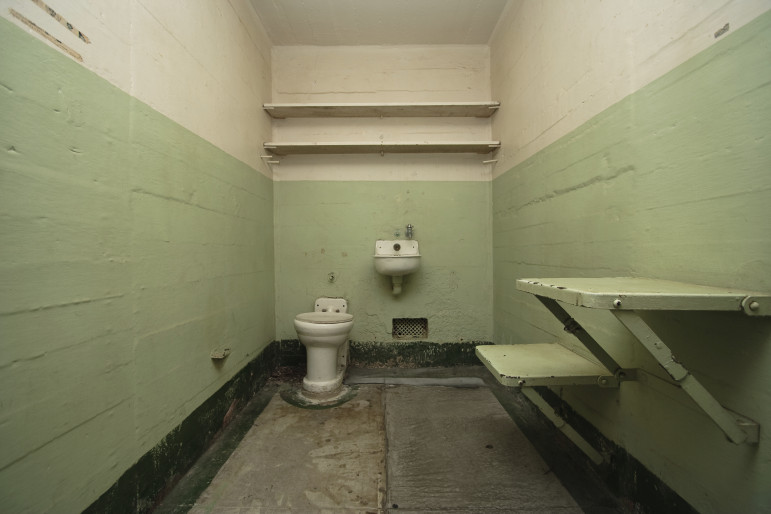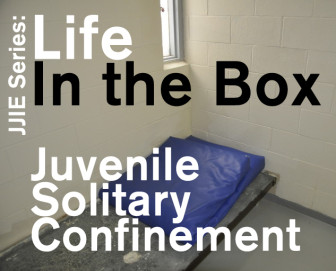
ThinkStock
The U.S. Justice Department says it has asked a federal court to prevent the Ohio Department of Youth Services from unlawfully placing boys with mental health disorders in solitary confinement at the state’s juvenile detention facilities.
The Justice Department alleges in a motion that DYS violated the constitutional rights of boys placed in solitary at all four of the state’s juvenile detention facilities.
“The State has systematically violated the substantive due process rights of boys with mental health disorders at four of its juvenile correctional facilities … and this Court must act immediately to protect these boys from mounting and irreparable harm,” the department said in a memo accompanying the motion, filed Wednesday in U.S. District Court for the Southern District of Ohio.
 “The State punishes the boys with seclusion (i.e., solitary confinement) for days on end, often also depriving them of education, exercise, programming and crucial mental health care.”
“The State punishes the boys with seclusion (i.e., solitary confinement) for days on end, often also depriving them of education, exercise, programming and crucial mental health care.”
The request for a temporary restraining order seeks to expand an existing complaint regarding what the Justice Department calls unlawful seclusion of boys with mental health needs at the Scioto Juvenile Correctional Facility in Delaware, Ohio, which is north of Columbus in the center of the state.
During the second half of 2013, the Justice Department said, the state had imposed nearly 2,500 days of solitary confinement on 229 boys with mental health needs.
The department said one boy had been held in solitary for 21 straight days while another spent about 82 days in seclusion in a six-month span.
Several of the boys held in solitary were on suicide watch, had suicidal thoughts or had hurt themselves, the Justice Department said.
Kim Parsell, a DYS spokeswoman, told JJIE the amount of time boys may spend in solitary in Ohio facilities in the course of a 24-hour period varies.
Juvenile solitary confinement, in which youths are locked alone in cells or rooms, sometimes for as long as 23 hours a day, has come under growing scrutiny recently.
Opponents say the practice amounts to torture and can cause irreparable psychological and developmental harm to youths, thousands of whom are held in solitary in juvenile facilities across the nation each year. (See Related Story.)
“The Ohio Department of Youth Services must stop violating the rights of youth in its custody through its unlawful seclusion,” Jocelyn Samuels, acting assistant attorney general for the Justice Department’s Civil Rights division, said in a news release. “The way in which Ohio uses seclusion to punish youth with mental health needs victimizes one of the most vulnerable groups in our society.”
Steven Dettelbach, the U.S. attorney for the Northern District of Ohio, said the alleged solitary confinement reveals “a serious disregard for the rights of young people with mental health needs in Ohio’s custody.”
“The Ohio Department of Youth Services has a responsibility to ensure the health and safety of these young people, including providing appropriate mental health treatment, so that they can overcome challenging behaviors and return to the community to become successful adults.”
DYS’s Parsell told JJIE that when youths are in solitary, they still receive treatment and programming.
“Addressing youths’ mental health needs is absolutely critical in our work of rehabilitating youth,” she said. “This is why we provide youth with individualized, evidence-based behavioral health services, education, recreation and more.
“We have a responsibility to provide a safe environment for youth and staff, and seclusion is used as a last resort to maintain safety and order so that we can help youth change their lives.”
The Justice Department said it entered a consent decree with Ohio in 2008 to correct deficiencies at the Scioto facility regarding use of solitary confinement and physical force as well as grievance investigation and processing. The department said Wednesday that DYS had continued to unlawfully seclude boys with mental health needs at Scioto and had done so at the state’s other three juvenile detention facilities as well.
Mental health issues are not to be swept under the rug. We cannot as a society just lock these boys away for days on end when routine is key to helping them cope and treat their mental illness. Whether or not they are in a detention center, these boys are ill and need to be treated properly. Without proper treatment, they can never learn to live in “normal” society. As Dettelbach said, it is a disregard for these boys rights, and the state has a duty to provide a safe environment where these boys can continue to learn in their young age, deal with their mental illness, and come out into society and know how to be respectable young men. This just isn’t right.